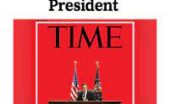Molly Minturn - My family is heartbroken to share that my father died in surgery on Monday, Feb. 10. It…
Wednesday Night #1057
Written by Diana Thebaud Nicholson // June 5, 2002 // Health & Health care, Herb Bercovitz, Jacques Clément, Reports, Wednesday Nights // Comments Off on Wednesday Night #1057
More on Wednesday-Night.com
(BBC, reported by Mike Fox) Canadian PM sacks rival
(BBC Analysis, Mike Fox) Battle at heart of Canadian politics
… Richard Schultz, professor of political science at McGill University in Montreal, says that the country has not seen such a conflict between a cabinet minister and a prime minister for the past century, if at all.
“This is a very serious development and it could split the Liberal party, even if Mr Martin stays within and launches a challenge for the leadership of the party,” he says.
“Even before this I’d been thinking that Martin had to resign at some point and fight a proper campaign outside cabinet. Mr Chretien lives by past animosities and grudges, and he was afraid that Mr Martin would start attacking him more and more openly.”
Professor Schultz says as the party’s leadership review approaches, the sniping from supporters of Martin and Chretien will become increasingly intense.
Chretien’s options
“By that stage, Mr Chretien will be considering several options; resigning before the review, because I think he has much less support in the party than Mr Martin, or staying on and aiming to beat Mr Martin in the review, and possibly then resign shortly afterwards, leaving time for another leader – not Mr Martin – to establish themselves before the next general election,” Mr Schultz said.
++++++++++++++++
In honour of our good friends and political observers from Washington, Terry and David Jones, this Wednesday Night Salon witnessed the gathering of a large, fascinating group of individuals of varying background, nationality, language, political affiliation and mostly opinion. In this atmosphere, a relatively large number of topics was discussed intelligently, with space permitting only the following brief resume of their content.
Montréal, Québec & Canada
Mayor Gerald Tremblay has been criticized by some because after half a year in office, his administration has yet to approve this year’s budgets. According to reports however, the summit was a great success, providing the new city with a clearer vision of the citizens as that of the politicians, a blueprint for the future – our New Montréal. Meanwhile, while the wish for demerger has not diminished, its realization is greatly in doubt.
MNA Jean Charest has repeatedly proclaimed his support for demerger where it is demanded by the citizens, but his future too, looks cloudy. There is a strong belief in some quarters that Charest will leave to succeed Joe Clarke as leader of the Progressive Conservative Party if he does not win the next Québec election. There is an equally strong suspicion that Mario Dumont does not have the monetary means to sustain an election campaign and will run out of steam before that race is over. With disenchantment of the two alternatives, we may just end up with a minority Liberal or P.Q. government, either situation hastening Charest’s departure. In the event of Bernard Landry’s resignation, the otherwise reasonably high probability of another P.Q. success will be greatly compromised by the fact that Pauline Marois, his most likely successor, is a woman. This is less a sexist than statistical opinion.
Meanwhile, on the federal scene, the ‘firing’ of Paul Martin will continue to generate much discussion – possibly for many years to come. The betting is that Jean Chrétien is playing is final scene. It is believed that if he yields graciously to his successor in the near future, he will be remembered for all the positive things he has achieved, but if he loses in a dirty battle, that will be the lasting memory of him. While Chrétien has certainly been a successful firefighter, it is believed that Martin has a better understanding of the larger picture. [A note on the globalization of communications. Diana woke in her room above the clouds and smog of Shanghai to the sound of Wednesday Night’s Mike Fox announcing the news of Paul Martin’s dismissal on the BBC. As soon as she could, she raced to the IATA AGM meeting rooms and connected the IATA computer dedicated to demonstrating the new website, and instead connected to Wednesday Night.com where she read the news that David had posted and conveyed it to her shocked Canadian colleagues.]
Economy
The U.S. economy is stumbling forward. The growth in the U.S. economy is anticipated to reach between 3½% and 4% this year, fuelled by strong consumer spending and confidence and strong technical sales. Inflation is expected to remain at 2% to 2½%. In Canada first quarter growth has been at 6%, mostly fuelled by strong export and import growths, strong consumer and government spending, strong manufacturing sector and a housing boom. 4% to 4½% growth is expected to be reported for the second quarter, thus outperforming the U.S. for the fifth consecutive year. Inflation is expected at between 2% and 2½% excluding the eight most volatile factors. The Canadian dollar will continue to strengthen to 67¼ cents this year and 69½% next year.
The fiscal surplus will be ten billion dollars this year, with two billion being returned to the provinces, two to three billion for increased spending, with the remainder going to pay down the debt which remains at 537 billion dollars including the pension fund, representing 51% of the G.D.P. This contrasts with most European countries which have a national debt averaging approximately 30% of G.D.P. In the context of Ottawa’s priority in paying down debt, there is no expectation of the federal government yielding to the demands from the provinces for an end to the “fiscal imbalance.” We can expect a ¼% tightening in each of five periods for a total of 2% tightening by the first quarter of next year.
On a trade-weighted basis in the group os six, our the value of our dollar is ninety cents American. We have the strongest employment growth in the group of seven.
Crude oil will continue to trade at between twenty-four and twenty-six dollars.
While some attribute our success to Paul Martin and the harmonization of Governors of the Bank of Canada, namely John Crowe, Gordon Thiessen and David Dodge, others believe that John Crowe’s alleged heavy hand in fiscal tightening created demand which, when lightened, released this pent-up demand. Those that hold this explanation believe that we are still living off this demand with a weak Canadian dollar cc$ chart versus a strong U.S. dollar, a situation which could be disastrous for us should the U.S. economy fail to grow sufficiently. Still others believe that creative accounting make the situation appear better than it really is.
The downside to our good fiscal condition is that productivity growth in Canada is half that in the United States, we are too heavily taxed, profit growth is very slow to recover, while equipment sales are beginning to recover in the United States.
World scene
On the world scene, there is continuing concern about pollution in China as well as a future shortage of women arising from current limits on family size, with male children being favoured over female. The situation in the Indian subcontinent is worrisome, with a possible mass killing of Muslims within India being of greater concern than the existence of first generation nuclear weapons, whose effects, while devastating would not be as great as the far more sophisticated nuclear, chemical and biological weapons existing in the Mid-east, which are capable of creating much greater havoc against crops as well as humans, or of a series of relatively minor attacks against the U.S.
The Environment
The existence of global warming is still being debated. It is pointed out that at different periods in the history of the world, the Thames has been frozen over with thick ice and at others has served as a swimming hole for hippopotami. Those who deny the dangers global warming, most likely a rapidly growing minority, claim that the strength of the sun’s rays varies, causing these fluctuations. see Water
Medicare
Before Medicare, if you were in the practice of a family physician, you were entitled to a continuum of care. Under Medicare, this has been more uneven and the government’s attempt to invest money into the formation of twenty-four hour a day medical group practices, is designed to re-instate the continuum of care, with a positive spinoff being the reduction of congestion in hospital emergency rooms.
The Prologue:
Wednesday the 5th of June we are delighted to have Terry and David Jones from Washington on their annual visit to check out the Montreal, Québec and Canadian scene. In their absence, we enjoy David’s perceptive commentaries in the Hill Times and Ehgloo, many of which you will find posted on Wednesday-Night.com



